This month’s post comes to us from Katrina Spencer, Librarian for African American and African Studies.
It’s February and again we gather a variety of content from the UVA Library to feature and present to you. The aim of Black History Month is to celebrate the contributions that African Americans have made in the United States. In this post, we share some streaming content that was made by and about African Americans, and also titles that represent some broader areas of the African diaspora. Places visited in the real and fictionalized filmic tales below include New York City, Philadelphia, Nigeria, Kenya, France, Portugal, Cape Verde, and Spain, demonstrating several, but not all, of the worldwide geographies Black people occupy. Themes include the representation of Black people(s) in art and media; enduring character archetypes like the mammy; fertility; same-sex relationships in conservative, heteropatriarchal societies; coming of age; searching for one’s roots; and breaking away from a toxic parent.
See a listing of streaming video portals at UVA. You can also contact Research Librarian Miguel Valladares Llata for more on Latin America and the Caribbean, and Video Librarian Leigh Rockey to learn more about the Library’s streaming content. Can’t get enough? Two film-based resources that exist beyond UVA include the Black Film Archive and A Guide to Essential, Underrated, and Flat-Out Extraordinary Films by Black Women Directors.
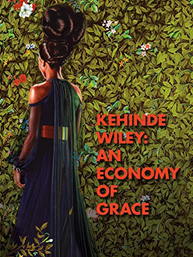 “Kehinde Wiley: An Economy of Grace,” 2014
“Kehinde Wiley: An Economy of Grace,” 2014
Platform: Public Broadcasting Service (PBS)
Twenty first century painter Kehinde Wiley is in his comfort zone painting the Black male form superimposed on his trademark background of vibrant, colorful florals. In this documentary, the audience follows his departure from habit as he prepares to paint Black women recruited from a shopping district in Brooklyn. The short film tracks his project from its conception, to planning, to execution, culminating with a triumphant showing of his portraits hung in a New York gallery. It is a pleasure to see the models re-envision themselves, taken from the urban concrete to the lush and regal imaginings of the canvas. I’d recommend this work to any art history major and/or anyone intending to work in a museum.
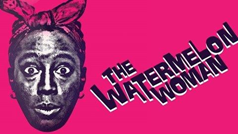
“The Watermelon Woman,” Cheryl Dunye, 1996
Platform: Kanopy
Early 1990s filmmaker Cheryl Dunye explores the “Mammy” trope threaded through early 20th century cinematic works. In this film, her fictional job at a video rental store in Philadelphia positions her well for this research. Her quest, however, takes her on an unanticipated journey in which she encounters frosty information workers, interracial relationships, and homophobia. Despite, or perhaps because of its many competing narratives, unresolved conflicts, and blurry storylines of fiction and non-fiction, this documentary-style work won best feature film in the 1996 Berlin International Film Festival. I’d recommend “The Watermelon Woman” to anyone interested in the history of cinema led by directors from the LGBTQ community.
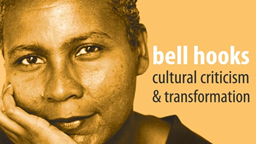 “Bell Hooks: Cultural Criticism and Transformation,” Sut Jhally, 1997
“Bell Hooks: Cultural Criticism and Transformation,” Sut Jhally, 1997
Platform: Kanopy
Consider this documentary work a primer on one of the most revered and prolific cultural critics of the 20th century, bell hooks, whose earthly journey came to an end, December 15, 2021. A feminist scholar and university professor, hooks is known for explicitly and regularly describing and naming a complex network of structures — white supremacist capitalist patriarchy — that shape life, social engagement, and media, nationally and globally. She regularly used this lens to deconstruct what images in popular media convey about the values and fears of the people of the United States. The 61-minute work includes references to several films and prominent creators of the 1990s, including Madonna and Spike Lee. I’d recommend this work to anyone interested in media studies and/or women, gender, and sexuality studies.
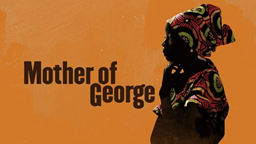
“Mother of George,” Andrew Dosunmu, 2013
Platform: Kanopy
Largely about the clash between tradition and modernity, Adenike finds herself in the new world of Brooklyn, New York, an ocean away from her Nigerian home, making a life alongside her beloved husband, Ayodele. After 18 months of wedded bliss without conception, Adenike’s in-laws become restless. Desperate to appease, Adenike considers alternatives that threaten the same traditions she is trying to uphold. The film’s colorful costume design is a pleasure to behold and the storytelling is so intimate that it could take place in any major metropolis. I recommend this work for people who are curious about West African aesthetics, celebrations, dress, and foods, and moreover to anyone whose parents share opinions about their offspring’s fertility.
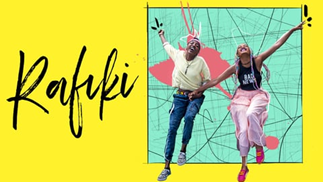
“Rafiki,” Kanuri Wahiu, 2018
Platform: Kanopy
Language: Both Swahili and English with English subtitles
Kena and Ziki fall hard for one another in their small, hyper religious, and patriarchal town, Slopes, in Kenya. In a space where privacy is impossible and conservative values are king, they struggle to nurture their love. With astute social commentary on what happens when Christianity, misogyny, homophobia, and the legacies of colonialism all meet, “Rafiki” invites viewers to view same-sex relationships with compassion. The film is excellent in its telling of place and time, documenting the contemporary lifestyles of young Kenyans, their dreams, their fashions, and the ways in which they confront modernity, determining what they want to hold onto from the past and what they want to release. I’d recommend this film to anyone desiring to study abroad in Africa, anyone studying Swahili, and anyone enrolled in a Women, Gender, and Sexuality course.
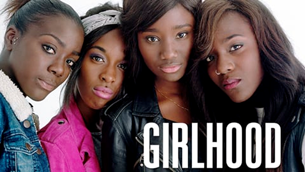
“Bande de Filles / Girlhood,” Céline Sciamma, 2014
Platform: Kanopy
Language: French with English subtitles
Trigger Warning: This film includes physical violence and sexual aggression.
When Marieme realizes she will not graduate and continue her studies, her life is thrown into turmoil. In a vulnerable moment as she grapples with her fear, she is tenuously welcomed into a group of girls who aimlessly wander the banlieues (suburbs) of Paris in search of amusement. Marieme learns to dress herself in cool, hard, and hip fashion, to drink, to smoke hookah, and to fight to defend her neighborhood’s honor. As the coming of age narrative progresses, Marieme loses touch with her innocence and comes to learn the threats that accompany crossing the threshold into womanhood, among which is the tarnishing power of a damaged reputation. I’d recommend this work to anyone wanting to know more about Paris beyond the Eiffel Tower and the Champs-Elysées as it negates much of the carefully curated depictions of the city and highlights the contemporary struggles faced in the world’s grand metropolises.
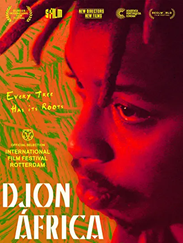 “Djon África,” João Miller Guerra and Filipa Reis, 2020
“Djon África,” João Miller Guerra and Filipa Reis, 2020
Platform: Digitalia
Language: Portuguese with English subtitles
Miguel finds himself stuck between two worlds: Portugal, where he was born and raised by his maternal grandmother and where he has lived for 25 years, and Cape Verde, the country of his father’s origin — a place that has authored his African features, yet a place he has never known. He is not wholly European and not entirely African: he is both. He decides to visit his father’s island country in the Atlantic to get in touch with his roots and to meet Miguel, Sr., his elusive namesake. Arriving in Cape Verde, Miguel, Jr. launches a languid odyssey of serendipity and misadventure, meeting young women, dancing on the beach, performing labor for a matriarchal elder, and getting to know more Cape Verdean landscapes than you can count. The film is a love letter to the African coastlines it features with countless stills of the islands’ natural beauty, each worthy of a postcard of its own. I’d recommend this work to anyone who is considering joining the Peace Corps, working for an NGO, or performing other humanitarian labor in Africa and/or anyone studying the legacies of Lusophone colonialism.
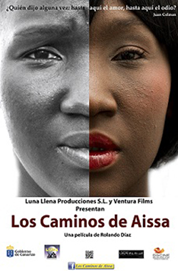
“Los caminos de Aïssa/The Pathways of Aïssa,” Rolando Diaz, 2013
Platform: Digitalia
Language: Spanish with English subtitles
Trigger Warning: This film includes discussion of suicide, abortion, and emotional abuse.
Aïssa is a young African woman who was born in Cameroon and emigrated to Spain from Equatorial Guinea. Having a contentious relationship with her mother, she tries to make a life for herself in Tenerife, the largest of the Canary Islands. Her days are spent rehearsing for dance shows, volunteering with the Red Cross, designing costumes, modeling, and waitressing. Some nights she spends go-go dancing in popular clubs. This intimate documentary tells one story of what it can mean to be uprooted as a Black African living in white Europe. I’d recommend this film to anyone pursuing global studies, as it highlights fraught, contemporary complexities in Spain which are likely invisible to the casual tourist.
